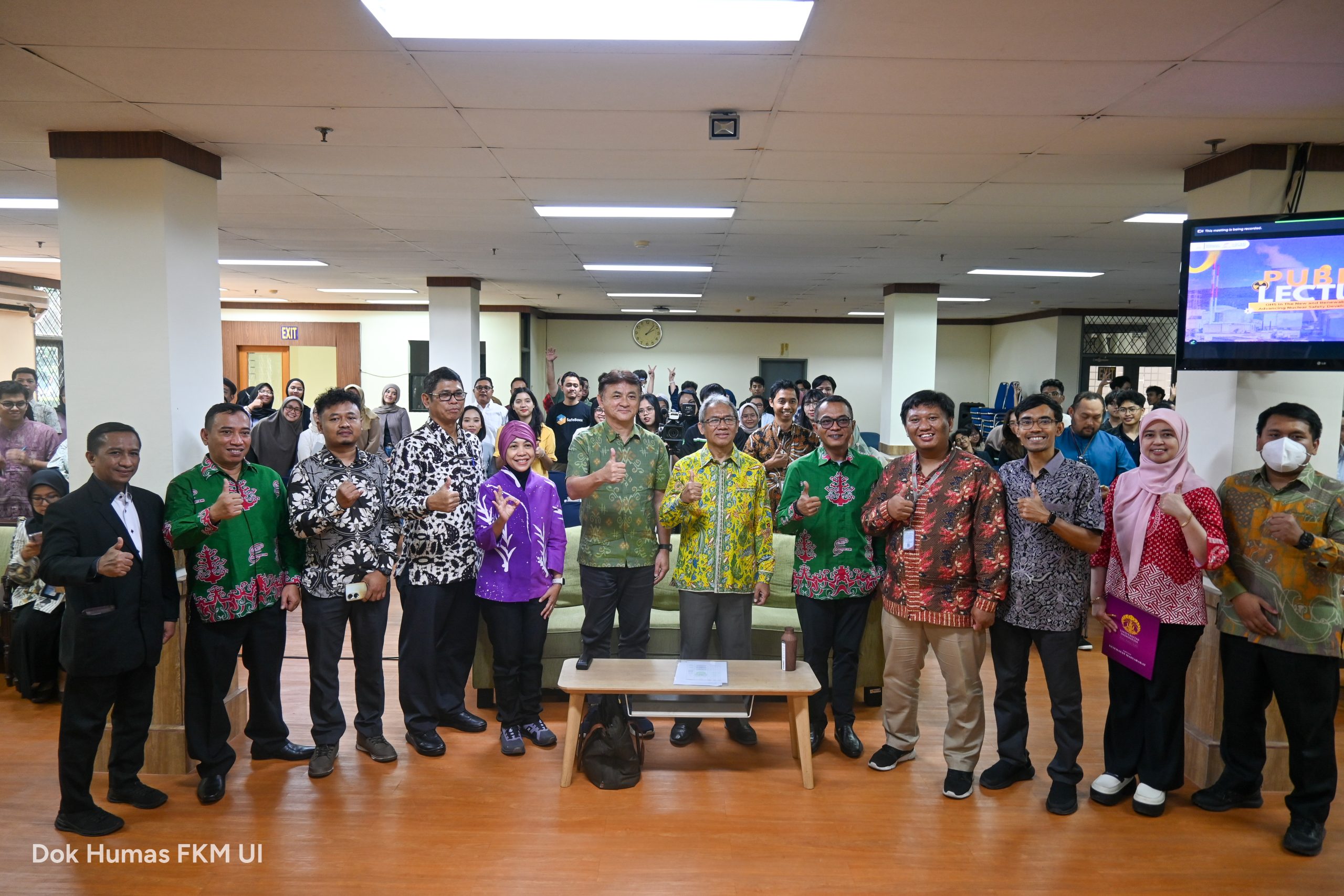Depok, August 29, 2025 – The Faculty of Public Health (FPH), Universitas Indonesia (UI), through the Department of Occupational Health and Safety (OHS), organized a public lecture titled “OHS in the New and Renewable Energy Sector: Developing Nuclear Safety in Indonesia.” The event, held in a hybrid format at the Doctoral Promotion Room, Building G, FPH UI, brought together national and international experts to discuss opportunities, challenges, and safety aspects in the utilization of nuclear energy in Indonesia.
Nuclear energy is considered to hold great potential as an environmentally friendly and sustainable energy source, supporting both national energy security and emissions reduction. However, its development also presents serious challenges, ranging from safety and risk management to public perception.
In her remarks, Dean of FPH UI, Prof. Dr. Mondastri Korib Sudaryo, M.S., D.Sc., emphasized the importance of readiness in various aspects, including safety and human resource capacity. “Nuclear energy presents tremendous opportunities to support energy security and emissions reduction, but it also demands preparedness in terms of safety, risk management, and human resources. This public lecture is expected to strengthen synergies among stakeholders in supporting the development of nuclear power in Indonesia,” Prof. Mondastri stated.
Support for the event was also expressed by Dr. Capt. M. Irwansyah, S.ST., Mar., M.K.K.K., Director of PUSPINEBT ICMI West Java, who highlighted that collaboration with FPH UI is a strategic step in advancing national energy security programs.
The first presentation was delivered by Prof. dra. Fatma Lestari, M.Si., Ph.D., Professor at the Department of OHS, FPH UI, who stressed the importance of regulations and a strong safety culture in nuclear operations. She underscored that nuclear safety is a shared responsibility requiring global collaboration. “Nuclear safety is a collective responsibility. The history of nuclear accidents offers valuable lessons for building a safer future, demanding global collaboration to share knowledge, experience, and strategies. Comprehensive risk assessments, strengthened organizational safety culture, continuous training and education, early detection systems, and public engagement in oversight and safety implementation are essential recommendations moving forward,” Prof. Fatma explained.
Safety issues were further reinforced by Prof. Dr. Eng. Shinji Tokonami from Hirosaki University, Japan, who shared lessons from the 2011 Fukushima incident. He highlighted the critical importance of clear and transparent radiation risk communication to the public in order to build trust during crises. “Providing clear and transparent information to the public can help address unfounded concerns and ensure that people understand the protective measures taken. Accurate knowledge of risks and benefits forms the foundation for building trust and reassurance in critical times,” Prof. Tokonami stated.
From a policy perspective, Irwanuddin H.I. Kulla, Expert Staff to the Minister of Energy and Mineral Resources (ESDM), explained that Indonesia has a long history of international cooperation in nuclear utilization, including signing the Nuclear Non-Proliferation Treaty (NPT). This serves as a vital foundation in ensuring national energy stability through nuclear technology.
Meanwhile, Yusuf Didi Setiarto, S.H., Director of Legal and Human Capital Management at PT PLN (Persero), highlighted the social, political, and governance challenges in developing nuclear power plants (NPPs). He stressed the need for stronger human resources, a robust safety culture, and public trust as prerequisites for Indonesia’s readiness.
The public lecture, attended by OHS students from FPH UI, students from other faculties at UI, as well as OHS practitioners, served as a strategic platform for academics, practitioners, and stakeholders to discuss the direction of nuclear energy development in Indonesia. With strong collaboration and comprehensive preparedness, Indonesia is expected to harness nuclear energy safely, sustainably, and responsibly. (ITM)

